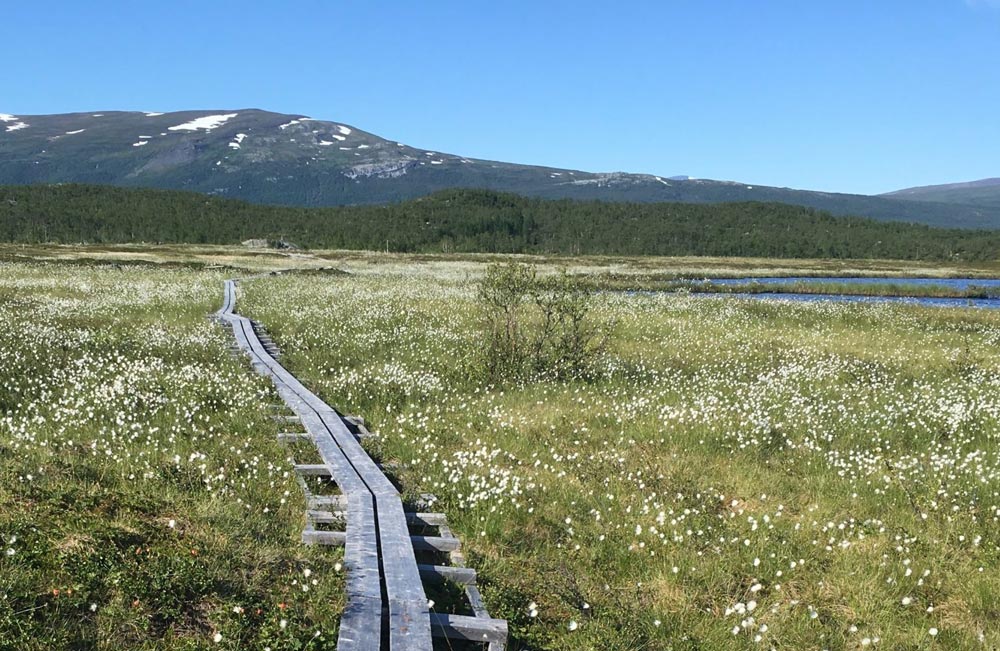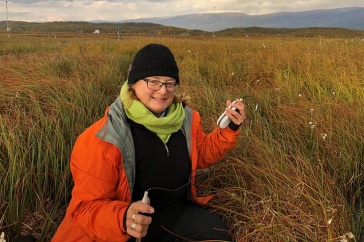
Permafrost Predictor: An International Approach to the Climate Crisis
NH is one of 14 universities from around the globe that have collectively been awarded $12.5 million by the National Science Foundation (NSF) to launch a new Biology Integration Institute (BII), called EMERGE. UNH received $3.6 million to collaborate with other universities including The Ohio State University, Case Western Reserve University, University of California at Berkeley, Rochester Institute of Technology, and other international universities, focusing on better understanding ecosystem and climate interactions — like the thawing of the Arctic permafrost — and how they can alter everything from the landscape to greenhouse gases.

The project will consist of a team of 33 scientists representing 15 scientific specialties. “We have assembled a large interdisciplinary team to tackle the complex research questions that face our world today,” says Ruth Varner, professor of biogeochemistry and co-director for EMERGE. The partnership brings together expertise inside and outside of biology, such as ecology and evolution, organismal biology, team science, and modeling and computational science. Research is being done in Stordalen Mire, a long-studied peatland in northern Sweden where permafrost thaw is driving changes in the landscape, plants and microbes.
The institute will also have a strong training, education and outreach component for early career researchers, which Varner will lead, and will involve biologists at the postdoctoral, graduate and undergraduate levels.
UNH scientists involved in the research include Steve Frolking, research professor in Earth sciences; Michael Palace, associate professor in Earth sciences; and Jessica Ernakovich, assistant professor in natural resources and the environment. Those involved in planning and implementing the early career researcher training programs include Melissa Aikens, assistant professor in biological sciences; Kate Siler, ADVANCE; and Erik Froburg, education and outreach specialist, UNH’s Leitzel Center.
Additional universities participating include Colorado State University at Fort Collins, University of Arizona, Florida State University, Lawrence Berkeley National Laboratory, Joint Genome Institute as well as Sweden’s Lund University, Umeå University and Stockholm University, and Queensland University of Technology in Australia.